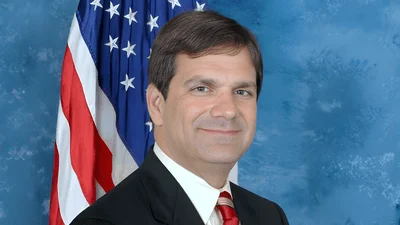Good morning and welcome to today’s hearing to discuss legislative proposals to provide paid family and medical leave for American workers.
Next Tuesday will mark the 27th anniversary of the enactment of the Family and Medical Leave Act. This historic legislation gave most American workers the right to take unpaid leave to care for a child, a parent, or a spouse, or to deal with their own serious medical condition.
When the FMLA was debated, naysayers claimed that it would create an epidemic of absenteeism and harm our economy. In fact, President George H.W. Bush vetoed it several times before President Clinton signed it into law.
We now know that the naysayers were wrong. The FMLA has helped our economy and saved money for American businesses by keeping workers in the workforce, instead of forcing them to drop out entirely to deal with urgent family needs.
I was proud to vote for the FMLA and to play a role in making it the law of the land, but today we know that the FMLA alone is not enough. This is because while the FMLA entitles workers to leave, if that leave isn’t paid leave many workers simply can’t afford to take it.
Right now, workers must rely on a patchwork of options with huge gaps. A limited number of states provide coverage to all of their workers. Some employers provide paid leave to their most highly-compensated employees, and a smaller group provide it to all of their employees. Some workers spend down all of their savings, and some leave the workforce and never return. This status quo leaves out the majority of the middle class, and does far too little to keep Americans of all income levels in the labor force.
Admittedly, the biggest driver of our declining labor force participation rate is our aging population and the higher likelihood of disability as we age. But we also know too many Americans who want to work are left out of the labor force. We know from the states’ experience, and many rigorous, long-term studies, that comprehensive, guaranteed paid family and medical leave increases labor force participation and keeps workers from being left out.
Paid leave increases labor force participation rates not just for new mothers, who are consistently more likely to work with higher earnings when paid maternity leave is available, but also for family caregivers of both genders. In California, researchers found that comprehensive paid leave increased labor force participation among unpaid family caregivers by 8 percent in 2008 and 14 percent in 2011.
Although I have great admiration for employers, like our witness Rebecca Hamilton, who choose to provide paid leave for their employees without any state or federal support, such employers are the exception, not the rule. Less than one fifth of workers are offered paid family leave by their employers. And even in the current tight labor market, the vast majority of recent growth in employer-sponsored paid leave benefits went to highly-paid workers, leaving most middle-class workers behind.
The current situation also disadvantages small businesses. Without a federal backstop for paid leave, small businesses are at a competitive disadvantage compared to bigger American competitors who can spread the cost over a larger pool of employees, and especially compared to foreign competitors whose employees get state-funded benefits.
I am proud that Massachusetts is one of the states that has chosen to guarantee paid leave to workers and employers. But for our national economy to be its strongest, we cannot depend on individual state efforts to address labor force participation.
And as our economy changes, workers will need portable benefits to allow them to move nimbly from job to job.
If all workers are expected to balance work and family, we need to offer them real, wage-replacement paid leave so they can pay the bills. I am proud to be an original cosponsor of the FAMILY Act, which does just that. The FAMILY Act uses a well-tested mechanism to allow all workers to earn paid leave protection by making small monthly contributions.
By contrast, I am concerned about proposals that would force new parents to choose between paid leave and the Social Security benefits they need to protect their families and have a secure retirement. For example, using analysis from Social Security’s Chief Actuary, the Committee estimates that under such proposals, a medium-earning new mom who took paid leave for the birth of two children would receive about $11,000 in paid leave benefits and then have her Social Security benefits cut by about $29,000.
American workers, employers, and the American economy need comprehensive paid family and medical leave now. I thank our witnesses for joining us here today and look forward to working with my colleagues to advance workable solutions for American families.
With that, I will recognize the Ranking Member, Mr. Brady, for an opening statement.







